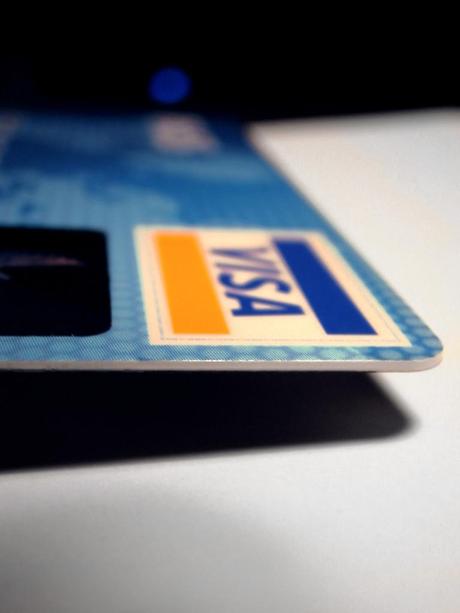
-

Don’t let the debt PACMAN eat up your earnings and life. Photo Credit: Zopa.com
The Debt PACMAN doesn’t have to eat up your earnings or enjoyment of life!
Students throughout the United Kingdom and across Europe worry about growing debt levels as tuition costs rise. Over the past few years, students’ protests about the sales of government issued student loans to private companies have not stopped the inevitable increase of tuition fees. And almost 500,000 new students entered the halls of higher education last year.
Graduating students must take their steps into the “real world” after university, and that means repaying student loans, credit cards, and other accrued debts.
Pay off high interest credit cards first to become debt-free. Photo Credit: Nacu
Unfortunately, the stuff of finance isn’t “boring” when it means the difference between living well and just existing to make debt service payments. It’s important to learn what to do, to take control of the situation as best as one can. That sometimes means negotiating or restructuring debts or seeking professional assistance. Regardless of your personal financial situation, take advantage of the insight and tips offered by Mike Naylor, a personal finance journalist, and Zopa to gain control over finances now! Here are a few tips to get started. Tip #1: Start at the beginning (this is the scariest part) Create a new spreadsheet, and write down each account owed:- Include the creditor name, address, and phone number.
- Note when payment is due.
- Tally up how much is owed to credit cards, loans, or bank fees, including overdrafts. (Money Charity says the average UK household owed £6,020 in September 2013.

Start by adding up all monthly debts, then subtract this sum from monthly income. Photo Credit: Ronnie B.
Tip #2: Know how much is earned and spent every month
- Use debit card for all spending to keep track.
- Cut any and all unnecessary spending.
Tip #3: Determine how much is really left over to repay loans and debts
After necessities like food and housing, how much is really available to repay debts?
Tip #4: Start with the highest interest rate debt
Credit cards may be the highest interest rate offenders–an average 19.1 percent APR!
- Negotiate a lower interest rate with the lender. Propose more favourable financial terms in writing.
- If credit card debt represents the bulk of what’s owed, consider transfer of debt from one or two cards to a new zero-interest card.
- Consolidate all debts into one loan to lower monthly payments owed.
- Lock-in a lower mortgage rate to free up more funds each month.
- Use asset-backed loans, such as those requiring collateral (home or auto), with care.
Tip #5: Free up additional cash
In order to make more than minimum payments, consider sale of significant assets, e.g. automobile, jewellery, etc.:
- Consider a loan from an insurance policy.
- Request a loan from family if possible.
Tip #6: Avoid new financial traps
Compare all new loans carefully, including origination fees, interest rates, and terms:
- Avoid payday lenders (and all super-short-term lenders)–rates can exceed hundreds to thousands of percent of principal!
- Avoid so-called financial advisers or money managers who charge fees for debt counseling assistance.
Tip #7: Visit a no-cost debt counselor service
Citizens Advice or Consumer Credit Counseling Service help to arrange a monthly budget and propose more favourable repayment terms to creditors.




